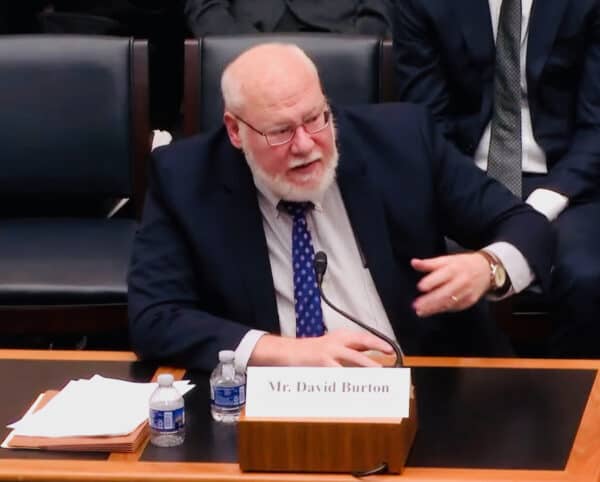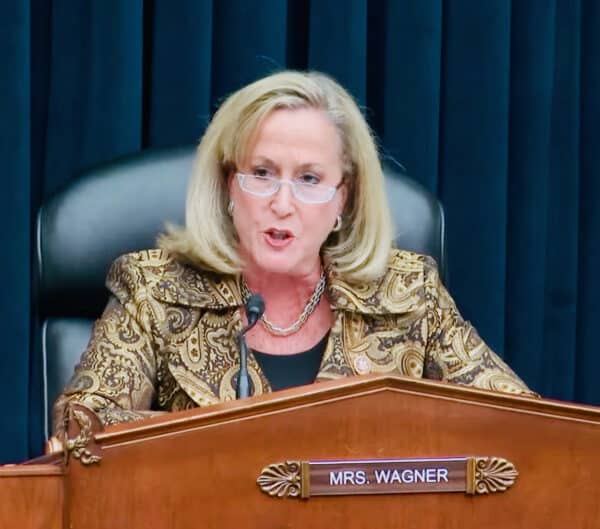Yesterday, the House Financial Services Committee, Capital Markets Subcommittee held a hearing on the alleged overreach of the Securities and Exchange Commission (SEC) and the need for reform. The current Commission, under the leadership of Chairman Gary Gensler, has been criticized by many policymakers as one of the most political Commissions in recent memory focusing on pursuing policies beyond its mandate. Such issues as Climate Disclosure, lack of focus on capital formation, and its inability to provide clear-cut rules for digital assets have frustrated many members of the business community.
As it stands today, the SEC’s mission is to protect investors, maintain fair, orderly, and efficient markets, and facilitate capital formation. Regarding capital formation, one prominent insider described the Commission as the “anti-capital formation” Commission.
The hearing memo stated that the goal was to examine Chairman Gensler’s policymaking approach, which has “sparked significant concerns” with rulemaking neglecting bipartisan concerns, insufficient comment periods, and exceeding its statutory authority.
Chair of the Subcommittee, Representative Ann Wagner, opened up the hearing with a statement describing Chairman Gensler’s rulemaking agenda as “frenetic” and “partisan,” which ignores “real world impact” minus cost-benefit analysis and stakeholder input. Wagner stated:
“The SEC’s aggressive and burdensome regulatory approach reveals the urgent need for sensible reforms at an agency responsible for protecting investors, maintaining fair, orderly, and efficient markets, and facilitating capital formation.”
Wagner noted that since taking over the SEC in 2021, Gensler has “flooded the marketplace with roughly 60 new proposals and more than 30 final rules.”
Much of the discourse during the hearing fell along party lines, with Democrat members supporting the actions of the Commission and Republicans criticizing the SEC’s direction of the SEC under the current Chair.
One of the witnesses participating in the Hearing was David Burton, Senior Fellow in Economic Policy at the Thomas A. Roe Institute for Economic Policy Studies at The Heritage Foundation. Burton has shared his expertise with CI in the past. An authority on securities law and policy, Burton has long been an advocate for policies that support capital formation and encourage innovation and entrepreneurship. In his prepared testimony, Burton highlighted the shortcomings of the Commission while criticizing claims that the agency is underfunded, noting that its budget has rocketed by 51% in the past ten years and 183% when looking at the past 20 years.
Burton described a Commission that dedicates massive resources to “ideological projects that are unrelated to the Commission’s statutory charge.”
Burton pointed to areas where the SEC has failed to address pressing regulatory issues while noting its tendency to regulate by enforcement, especially regarding digital assets.
Burton explained:
“Perhaps the leading area in which the Commission has been irresponsible is the area of digital assets, or crypto assets. For over a decade, it has failed to provide basic rules for responsible actors to follow. I am not entirely sure whether this irresponsible failure to provide basic rules is a function of the limited understanding of those charged with regulating in this area or their desire to simply have no rules so that the Commission can engage in regulation by enforcement. It has tried to crush the adoption of new technologies. And yet it has also failed to protect investors from massive fraud and misappropriation by politically connected bad actors in the digital asset area. If you were to write a book on how not to regulate, the Commission’s modus operandi in this area would be the first chapter. And the Commission leadership continues to plod blithely along as if nothing is wrong with their approach.”
A longstanding policy void is how “Finders” are regulated. While the inability to create rules for individuals that match investors to private firms has been requested for many years, Burton said this is “another example of irresponsible regulating” by the Commission.
Touting the success of the JOBS Act of 2012, the legislation that legalized investment crowdfunding, since the bipartisan law was passed during the Obama administration, the SEC currently “makes it more, rather than less, difficult for small businesses to raise capital.”
“I should also note that the SEC is working on a potentially highly destructive amendment to Regulation D that may radically reduce the number of persons that can invest in Regulation D offerings, harming investors, and harm the ability of entrepreneurs to raise capital,” added Burton.
As for the recently approved Climate Disclosure rules, Burton lambasted this initiative as having no impact on the climate slamming it as benefiting attorneys, accountants while fostering a new consulting industry as firms are forced to hire “GHG emissions attestation providers.”
Burton also provided commentary on potential legislation that was affiliated with the hearing.
While the hearing was critical of the Commission, little is expected to change as long as the current Chair remains in control of the SEC.



